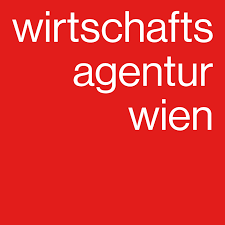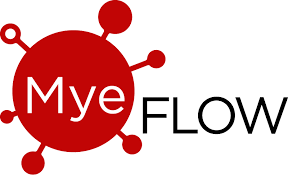Background
Our working group’s research focus deals with the development and validation of new diagnostic methods based on flow cytometry. We focus mainly on leukemia and lymphomas, which make up about 50% of all cases of cancer in children and adolescents. The topics of our work are investigations into disease-associated peculiarities of protein expression, which could in future be exploited clinically for elaborate diagnostics, risk stratification and treatment tailoring to individual needs. Our scientific focus also lies on the goal of developing new therapies for children and adolescents with leukemia and lymphomas.
Our research
(1) Standardization and quality control of diagnostics immunophenotyping and MRD in ALL and AML in an international context
Standardization of immunophenotyping as well as of FCM-MRD assessment in ALL and AML is necessary to allow concordant multicentric application of the methodologies. We already induced an international extensive standardization and validation effort for immunophenotyping as well as MRD-assessment in ALL and elaborated common guidelines. We are currently working intensively on the standardization of the AML-MRD methodology in a broad international context (see pt. 2). We are constantly applying comprehensive training and QC programs involving a large number of international laboratories within the I-BFM consortium to complement standardization of the methodology with an educational component as well as with persistent quality control measures. These QC measures include twinning-maturation programs, obligatory participation in external QC programs, organizing FCM-data file ring robin rounds, independent data surveys on study results as well as regular joint educational feedback meetings.
(2) Flow cytometric minimal residual disease assessment (FCM-MRD) in AML
FCM-MRD has been demonstrated useful for refined identification of AML patients at high risk of relapse by some research groups including the Italian pedAML consortium. However, the use of non-standardized protocols including different staining panels, analysis and gating strategies etc. hampers a broad implementation of FCM-MRD monitoring in clinical routine. We are therefore currently inducing an extensive and broad standardization program within the EuPAL-FLOW (European Pediatric Acute Leukemia) network, containing the majority of reference laboratories of the three major European consortia (AIEOP-BFM, NOPHO-DBH, MyeChild01). Besides standardization, another aim of the EuPAL network is to prospectively acquire and validate large FCM-MRD data sets in prospective and multi-center clinical studies. We also compare our FCM-MRD methodology with another independent methodology (DNA-PCR) as well as with morphology and correlate the results with the outcome of the patients to identify the method that correlates best with the outcome of the patients.
(3) Automation of MRD assessment in ALL and AML using machine learning
In close collaboration with the TU Vienna (Computer Vision Lab) we have already developed a software for automated detection and quantification of MRD in ALL (“AutoFlow”). In contrast to ALL, MRD detection and quantification in AML is much more complicated due to the much more complex pathology of AML. Hence, a reliable and objective tool for automated FCM analysis would foster standardization of the methodology and allow quality-assured clinical follow-up assessment of AML-MRD. In our current project “MyeFlow” we are using the preliminary work of our project “FlowCluster”, where we have collected a large database of FCM-MRD data as well as developed software prototypes. We continuously extend the database throughout the current project and integrate as well as enhance the developed algorithms to develop a clinical decision support system and to enable its use in the clinical practice of AML.
(4) Functional precision oncology pediatric AML
Constitutive activation of signaling pathways in AML cells is associated with poor prognosis. Hence, signal pathway interception in addition to chemotherapy regimen has emerged as a novel approach for the treatment of AML. Several new drugs have recently entered the clinics for the treatment of AML in adults, but their efficacy is poorly understood in pedAML. We employ an innovative long-term 3D culture approach as well as phospho-profiling technology to study the efficacy of selected novel signal interceptors/drugs in different subtypes of pedAML to develop a tool for personalized treatment of pedAM. Together with the group of Kaan Boztug we integrate FCM-based characterization of AML (including phospho-profiling) augmented with ex-vivo chemosensitivity testing using image-based methods and deep genomic characterization of AML to define functional subgroups of pedAML and to identify patients at risk for therapy resistance/relapse as well as to define potential drugs for targeted treatment approaches.
Projects and Funding


- Automated minimal residual disease assessment in childhood acute myeloid leukemia (MYEFLOW)
CCRI responsible researcher: Margarita Maurer-Granofszky (Principal Investigator: Michael Dworzak)
Grant from the Vienna Business Agency, From Science to Products 2019, ID – 2841342
Duration: 15/03/2020 to 30/09/2024

- Linking ex-vivo chemosensitivity, treatment and pathway activations for a deeper understanding of pediatric AML (ExTrAct-AML)
CCRI responsible Principal Investigators: Michael N. Dworzak, Kaan Boztug
Grant from the Austrian Science Fund (FWF), Clinical Research Project (KLIF), ID – KLI 1056-B
Duration: 01/10/2022 to 30/09/2024
Selected Articles
Collaborating Partners
Buldini, Univ. Padova, Italy (Immunophenotyping in pedAL), Reinhardt, Univ. Essen, Germany (AML precision oncology and MRD studies), Tierens, NOPHO group (AML-FLOW-MRD), Locatelli, Univ. Rome, HPBG, Italy (AML precision oncology and MRD studies), Kiss, Univ. Debrecen, Hungary (ALL-FLOW-MRD within ALL-IC-BFM trials)
About Michael N Dworzak
Univ.-Doz. Dr. Michael N. Dworzak (MD) is vice chair of the St. Anna Kinderspital in Vienna and Section Head of pediatric Oncology & Hematology. He is also chair of the Austrian pediatric AML-BFM clinical trial group, co-chair of the international AML-BFM study group and head of the Immunological Diagnostics laboratory at CCRI and Labdia Labordiagnostik GmbH. This laboratory unit is the national reference diagnostic center for immunophenotyping and flow cytometric MRD-evaluation for pediatric leukemia in Austria. He coordinates several international FLOW study groups and networks, including the iBFM FLOW network as well as the EuPAL FLOW Diagnostic Network. His major achievements include the establishment, clinical validation, and international dissemination of an innovative landmark-technology for response assessment in pediatric leukemias based on flow-cytometric minimal residual detection (FLOW-MRD). This eventually led to the integration of FLOW-MRD into clinical treatment protocols, which are applied by an intercontinental consortium for stratification of pediatric patients into relapse-risk-based treatment strata worldwide.
Team







